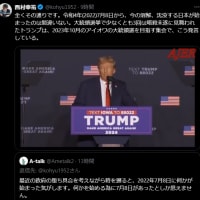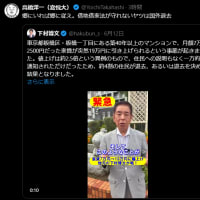It is rare to find a commentary that so clearly and thoroughly exposes how these individuals—over the course of the postwar period—have caused such incredible harm to Japan’s national interests and consistently aligned themselves with China and the Korean Peninsula.
July 1, 2019
The following is a chapter originally published on December 11, 2018, under the title: A chapter that brilliantly proves that Junko Miyawaki is one of the world’s leading scholars of East Asian history and possesses profound insight into the essence of China.
The text below is taken from pages 139–140 of the book introduced in the previous chapter.
It is a remarkable demonstration of Junko Miyawaki’s status as a world-class scholar of East Asian history, someone with deep understanding of China’s inner workings.
At the same time, it instantly exposes the superficiality and intellectual shallowness of individuals posing as “journalists” on platforms like Asahi Shimbun or NHK.
In the case of NHK, it is nothing more than highly paid corporate employees pretending to be journalists while hosting news programs—an utterly dismal situation.
There are few commentaries that lay bare with such clarity how these people have, since the war, relentlessly undermined Japan’s interests and sided with China and the Korean Peninsula.
The Hidden Power Struggle Between Deng Xiaoping and the Military Behind the “Textbook Issue”
Miyawaki:
By the way, what about the control over the military?
Isn’t that one of those cases of “easier said than done”?
Even Deng Xiaoping couldn’t manage it so well.
In China, the military remains the most powerful entity, doesn’t it?
Miyazaki:
In Deng’s case, he initiated the Sino-Vietnamese War to mobilize the military.
He even sent the units of his political rivals to the front lines to eliminate them—just as Mao Zedong had done during the Korean War.
In fact, this method has been common throughout history.
Even during Japan’s Boshin War, the clans that had defected to the imperial forces were placed at the vanguard of the fighting.
What set Deng apart was his ability to actually mobilize the army.
Miyawaki:
Yet, in an attempt to suppress the military’s political influence, Deng tried to separate the Central Military Commission (CMC) from the Communist Party and convert it into a state-run body.
This attempt ultimately failed.
Coincidentally, it was around the same time that the “textbook issue” with Japan erupted.
In reality, the textbook dispute between Japan and China was underpinned by internal political struggles within China.
To elaborate: Deng’s designated successor, Hu Yaobang, had no military experience.
It was clear that after Deng’s death, Hu would not be able to control the People’s Liberation Army through the Party’s CMC.
That’s why Deng tried to transfer the military commission from the Party to the State, reorganizing it into a National Central Military Commission.
If this succeeded, the military would then be subject to the orders of the Premier of the State Council.
However, the military fiercely resisted.
To undermine the Deng-Hu-Zhao Ziyang regime’s attempts to reduce their power, senior PLA officials manipulated the People’s Daily and other state media from behind the scenes.
They incited outrage by claiming that Japanese textbooks had altered the term “invasion” to “advance,” sparking a diplomatic crisis (source: Okada Hidehiro Collected Works Vol. 5: Perspectives on Contemporary China, Fujiwara Shoten, 2014).
As Deng, who had previously maintained good relations with Japan, came under growing pressure, he was ultimately forced to abandon his military reform.
He agreed to retain the Party’s CMC as the supreme body.
The moment this decision was made, the textbook issue disappeared from the Chinese media and ended abruptly.
Meanwhile, ignorant Japanese—unaware of the Chinese Communist Party’s internal power struggles—responded by yielding to Chinese pressure, introducing textbook censorship and “neighboring country clauses” in an effort to be considerate.
As a result, China reaped diplomatic gains from Japan—achieving not just two but three birds with one stone, in what turned out to be an embarrassing episode.
This was a textbook case of “pointing at the mulberry to scold the locust” (指桑罵槐), a classic strategy of attacking something unrelated to one’s true target.
The textbook issue was simply used as a political tool.
(Remaining portion omitted)

















